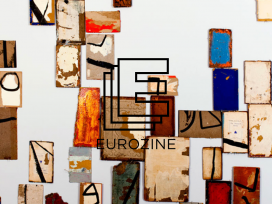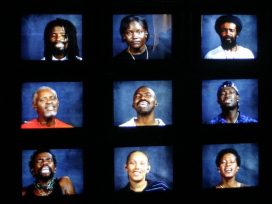The force with which the old controversy around Peter Handke returned at the end of 2019 illustrated something by now very familiar: that a writer who, even twenty years ago, would have been viewed as ‘uncomfortable’, and for that reason worth discussing, can – in the age of the ‘shitstorm’ – polarize to such a degree that discussion becomes difficult.
This is not to say that Handke’s work was not discussed. On the contrary, vital and fascinating questions were raised about the notion of literary purity and the correlation between style and ideology, not to mention about Serbian war crimes and international interests in the Balkan wars. Indeed, rarely since The Satanic Verses has literature seemed so relevant. But the debate also seemed peripheral to the extra-literary war of words being fought over social media as to whether – and here the contrast with the Rushdie affair could not be greater – Handke merited recognition at all.
Beyond questions as to whether Handke is an apologist for genocide or a torchbearer of poetic autonomy (or both), the controversy said as much about how literature is talked about today as what it talks about. It illustrated a paradox in the way that literature – though not just literature – is debated in a politicized age: that positions become more dogmatic, not less; that consensus becomes more, not less imperative.
After all, political stability need not always be the product of pluralism; polarization need not always be negatively connoted. Many see in the current moment a contestation and unsettling of ideologies that have hardened since the hiatus of 1989/1991. The illiberal backlash cannot be sanitized through conventional political morality: liberal democracy must redefine itself in order to win back credibility. Literature and literary debate are not necessarily where that process will start. But if they succumb to dogmatism, it is hard to see where else free thought will flourish.
This is not to endorse the disingenuous and reactionary polemic against ‘political correctness’. But it is to express alarm at how intolerance of variance, dissent and ambiguity can throttle and trivialize literature and literary debate, and public debate as a whole.
Traditionally, literature is a central concern of cultural journals. The new Eurozine focal point ‘Consensus and controversy’ acknowledges this centrality by claiming a space for literature that is not separate from the political, but integral to it. Starting out from the question of the transformation of literary debate in a politicized age, contributions explore how particular authors and literatures address questions of politics and of a politically engaged literature.
The series will continue during 2020 and beyond. We hope you find it thought-provoking!
This editorial is part of our 2/2020 newsletter. You can subscribe here to get the bi-weekly updates about our latest publications and news on partner journals.







